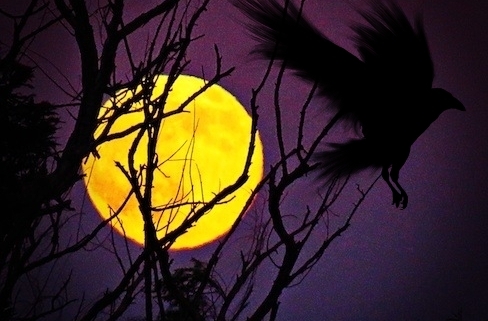The graveyard shift’s first four hours unfold like a switchblade in a back alley brawl, the night sky morphing from a hue as black as Poe’s Raven to searing white as jagged shards of lightning arc overhead. It’s when the nocturnal creatures emerge—the crazies, the criminals, and the ordinarily sane folks who’ve let booze and dope hijack their “I know betters.”
These are the hours that grizzled veteran cops swap tales—”war stories”—over greasy spoon breakfasts of underdone eggs and rubbery sausage patties, their coffee as black as the nights they patrolled. They’re like old soldiers, their blues and scarred gun belts swapped for flannel shirts and high-waisted pants held in place by leather straps that strain against paunches earned by years of fast-food dinners grabbed between calls.
The pancake house air is thick with nostalgia and the sizzle of frying bacon, a chorus to their anecdotes.
Young rookies listen to their words but brush them aside. Like the crazies and those temporarily insane by intoxication, the square-jawed, muscled, wet-behind-the-ears officers with eight months on the job and fresh academy training believe they’re invincible, with more know-how than the seasoned, experienced experts.
But they begin to focus as the elders reminisce, sliding forward in their seats with elbows on the table. Eyes a bit wider.
“Remember them days before Kevlar and Glocks?” one old-timer might say, his beefy fingers wrapped around a stained mug. “When your radio crapped out soon as you hit the county road out past the rock quarry, and you was on your own against that family who took potshots at cops just for the fun of it?”
They compare scars like fishermen comparing lures—each mark a story, each pucker of flesh a badge of survival. There’s the raised line on a cheek where a screwdriver found purchase, the zig-zag on a forearm from a razor-wielding meth dealer who didn’t want to go a jail again, a crooked finger caused by a break during a violent scuffle when a man tried to take away the officer’s gun.
One starts in on a raid, his voice dropping low and quiet as if the memory might spook the suspects. “Two a.m., pitch black ‘cept for them stars up there. A scraggly old alley cat brushed my leg. Scared the bejesus out of me, I tell you what. It looked up at me like it knew somethin’ we didn’t. Made me think about what we were getting into. Air that night was so still you could hear your own blood rushin’ through your veins, and sweat rollin’ down your back colder’n a well digger’s hind end.”
The night comes alive in their telling—three-legged mutts and dumpster-diving raccoons with eyes like burning coals in the sweep of a spotlight. They speak of the wino who wore his clothes like geological strata, stench rising off him in visible waves, maggots squirming in places no man should host such creatures.
Their words paint the midnight streets: steam rising from storm drains like lost souls, stoplights winking in devil’s morse code, working girls and drug runners melting into shadows at the sight of a slow-rolling cruiser. The lonely acknowledgment of a street sweeper, one finger raised in mute solidarity.
They remember the dispatcher’s voice, flat as day-old beer but carrying the weight of potential disaster in every clipped syllable. The adrenaline surge at “shots fired” or “officer needs assistance.” The foot chases down dark alleys rank with piss and desperation, the struggle and the satisfaction of slapping cuffs on some dirtbag who thought he could outrun justice.
But there are darker memories, too, lurking just beneath the surface of their banter. The bloated river corpse with fish-nibbled eyes. The teen whose life pumped out in crimson arcs from a slashed throat, painting responding officers in guilt and helplessness. The decapitated body by the tracks, a grim lesson in situational awareness.
Somewhere between ten and fifteen years ago, between the raid and raccoons, the youngsters got yanked away to a shots-fired call.
The breakfast diners are gone, replaced by early lunch crowds drawn by the siren song of chicken and dumplings. The old-timers drift away, one by one. They’d been there all night.
Back to lives of doctor’s appointments and oil changes, to spouses who’ll never fully understand what they’ve seen and done.
But for a few precious hours, they were cops again—brothers and sisters in blue, guardians of the thin line between order and chaos. All they have left now are memories, broken bodies, and that familiar cup of joe.
Like the good old days when they stood tall against nights as dark as Poe’s Raven and teemed with unseen threats, their coffee was black. No sugar. As bitter as the memories that now haunt their quieter days.


